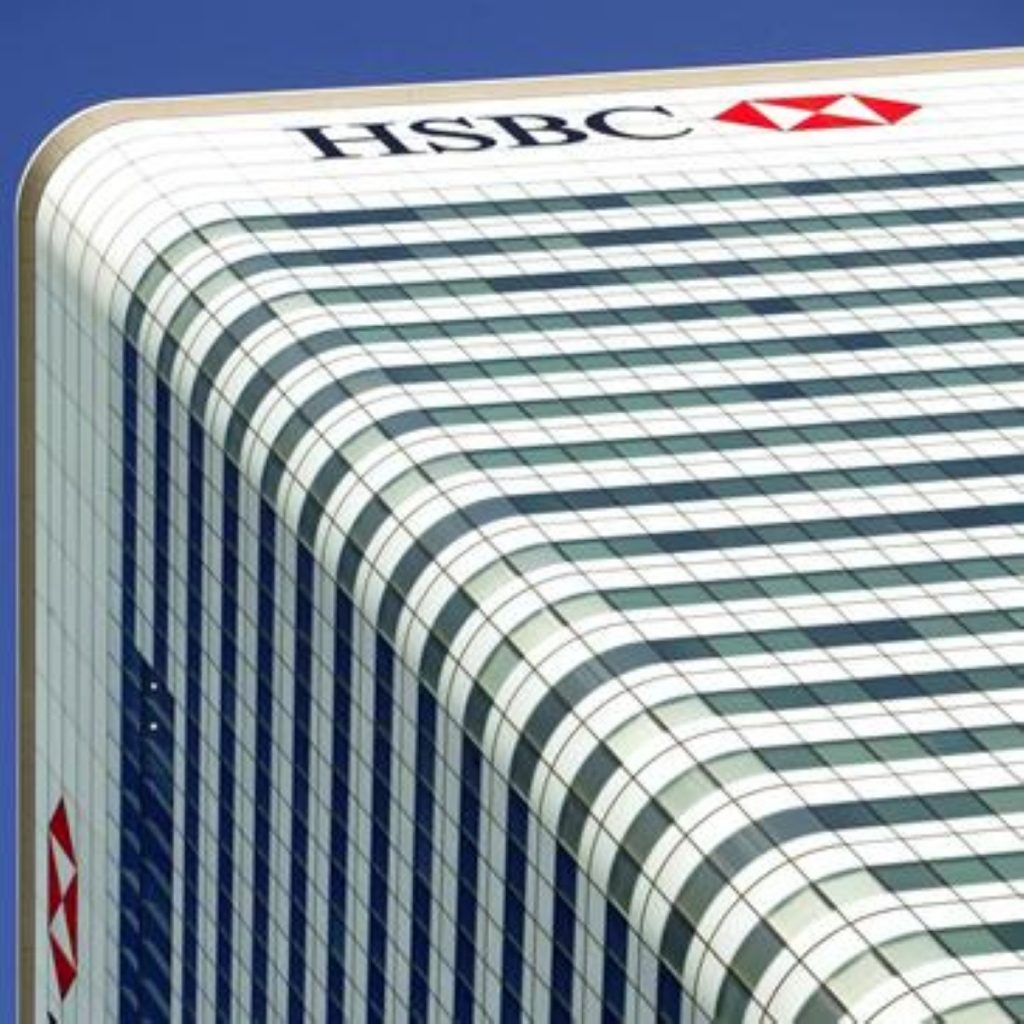HSBC profits fall as pensions debate continues
By politics.co.uk staff
HSBC has announced a 62 per cent drop in profits, with a reduction to $9.3 billion (£6.5 billion) pre-tax profits triggered by huge losses in the US.
The announcement comes as fury over bank bonuses and pensions continues to dominate headlines, with deputy Labour leader Harriet Harman facing internal criticism for her strong words on the subject over the weekend.
HSBC has coped better with the financial crisis than some of its rivals, which have had to seek bailouts from government.
However, the bank said it has not been immune to events and is issuing a cash call to shore up its balance sheet to “respond to unforeseen events” as well as taking advantage of acquisition opportunities.
Chairman Stephen Green said the bank is winding up its US personal finance business, which it bought in 2003.
“HSBC has a reputation for telling it as it is. With the benefit of hindsight, this is an acquisition we wish we had not undertaken,” Mr Green admitted.
HSBC said the division lost $15.5 billion (£10.9 billion) over the year and the bank is dropping its HFC and Beneficial brands as a result.
It also admitted regret about entering into the US subprime market after announcing a £12.5 billion rights issue.
In a candid statement on the bank’s results, Mr Green admitted the banking industry has made many mistakes that have contributed to the current crisis.
He said: “Underlying all these events is a question about the culture and ethics of the industry.
“It is as if, too often, people had given up asking whether something was the right thing to do, and focused only whether it was legal and complied with the rules. The industry needs to recover a sense of what is right and suitable as a key impulse for doing business.”
The bank will still be paying a final dividend, but decided to lower the payment for 2008 by 29 per cent, in dollar terms, from last year.
For 2009, HSBC has cut the first three interim dividends to $0.08 to reflect the rights issue and business conditions.
HSBC hopes the rights issue will raise $17.7 billion (£12.5 billion), which will be used to raise its tier 1 ratio so that the range will be from 7.5 per cent to ten per cent.
The issue of bankers’ bonuses has provoked ferocious controversy in recent weeks, most notably with the row over the pension for former-RBS chief Sir Fred Goodwin.
Following the announcement on Thursday that RBS had recorded the worst losses in UK corporate history it emerged that Sir Fred was to receive a pension of £693,000 per year following his resignation last year.
It has since been revealed that ministers were well aware of this fact, yet signed off on the £16 million pension fund in the belief it was not discretionary.
They now claim they were misled and the prime minister has insisted he will take legal action to “claw back” some of the money from the former banker.
UK Financial Investments, the government body established to oversee the state’s shareholding in RBS, has asked lawyers from Slaughter and May to examine the legal options available to the government.
But UK pension laws and government support for RBS are expected to limit the number of avenues available.
Ms Harman told the BBC yesterday the government had asked Sir Fred to do the right thing and volunteer to return the money.
But she warned if he remained intransigent they would take steps to reclaim it and one way or another they would be getting the money back.
“Sir Fred Goodwin should not count on being £650,000 a year better off, because that’s not going to happen,” she said.
“The prime minister has said that it is not acceptable, and therefore it will not be accepted,” she added.
“It may be enforceable in a court of law, this contract, but it is not enforceable in the court of public opinion. And that is where the government steps in.”
Sir Fred was responsible for the risky acquisition of Dutch bank ABN Ambro, a move which precipitated the collapse of the bank and was responsible for the bulk of the losses announced last week.
The HSBC announcement came as AIG, dubbed the ‘world’s insurer’, unveiled quarterly losses of almost $62 billion, a record low in the history of corporate America.
The insurance giant recorded losses of $61.659 billion (£43.9 billion) in the final three months of 2008, prompting the latest stage of a government rescue.
The US treasury and Federal Reserve responded to the unprecedented losses by pledging $30 billion towards a new rescue package. AIG, which has operations in 130 countries, has already received $150 billion (£106.7 billion), making it the largest beneficiary of government bailouts.
“The government’s restructuring is designed to enhance the company’s capital and liquidity in order to facilitate the orderly completion of the company’s global divestiture programme,” a joint Fed and treasury statement said.
“The company continues to face significant challenges, driven by the rapid deterioration in certain financial markets in the last two months of the year and continued turbulence in the markets generally. The additional resources will help stabilise the company, and in doing so help to stabilise the financial system.”
AIG, which lost the equivalent of $22.95 (£16.32) a share in the final quarter of 2008, said its results in the fourth quarter were “negatively affected by continued severe credit market deterioration, particularly in commercial mortgage backed securities and charges related to ongoing restructuring-related activities”.





-01.png)